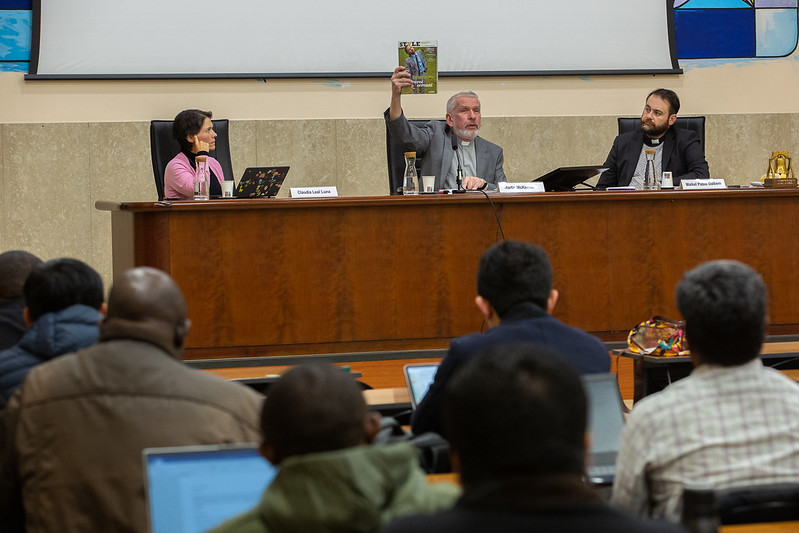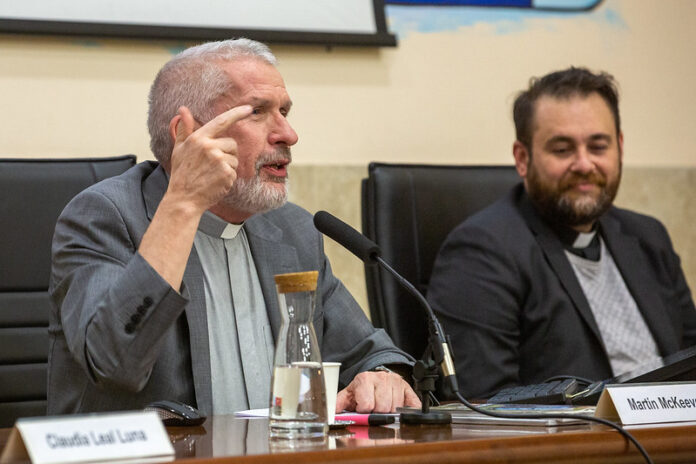November 22, the Alphonsian Academy brought us together in a webinar to reflect on a topic of importance: “Integral ecology and lifestyles in times of transition and crisis”.
Avoiding the temptation to escape and “look the other way”, we were led into the crisis with the provocation of prof. Martin McKeever C.Ss.R., as he wondered about the possibility of finding a “vaccine” capable of confronting – not a tiny virus this time – but a growing, deep and widespread malaise. We are facing a “permacrisis”: a permanent state of risk caused by an infinity of successive crises (financial, health, ecological, migratory, geopolitical) that have been worsening and leave us in a dramatic situation of ongoing uncertainty.

Faced with this complex situation, is it possible that a new “lifestyle” could be a realistic antidote? Do its attractive and aesthetic notes not conceal the irresistible power of the socio-cultural and political paradigms that shape us? For McKeever, the challenge lies in maintaining this tension so that this new “way of walking” can open up new paths for the individual and society.
Claudia Leal Luna (professor at the Istituto Giovanni Paolo II) then introduced us to the transforming power of the “lifestyle” of the family, which is marked by “care”. It showed its importance during the pandemic. There, the art of relationships is cared for, distancing itself from the modern accents devaluing the interconnectedness and fragility of our world.
Far from a romantic view of “care” and its vitality in families, her reflection led to “touching with the hand” the suffering body, with all the beauty and demands that this implies. Cultivating this capacity does not resolve the numerous questions that beset us. Still, it offers a new way of life that presents itself as a “geography or grammar” capable of illuminating the confines of our culture and giving impetus to a “spirituality” of our own in our time.
Finally, prof. Maikel Dalbem C.Ss.R., following the guidelines of Laudato Sii, raised the intense relationship between society and biome in the hyper-globalised context in which we find ourselves. The engine that drives today’s society is that of technocratic capitalism that devastates the balance desired and sought by many cultures that perceive the profound relationship that unites man (with society, culture) and nature (with its ecosystems).
He recalled and shared Querida Amazonía’s dream of entering into a “new style” that is aware of the challenge of balance and interrelation that characterises our existence in the biome. It is a way of understanding our belongings, our conception of time, and our own and the communal body.
Esteban Madrid Páez
The original text is in Spanish.






